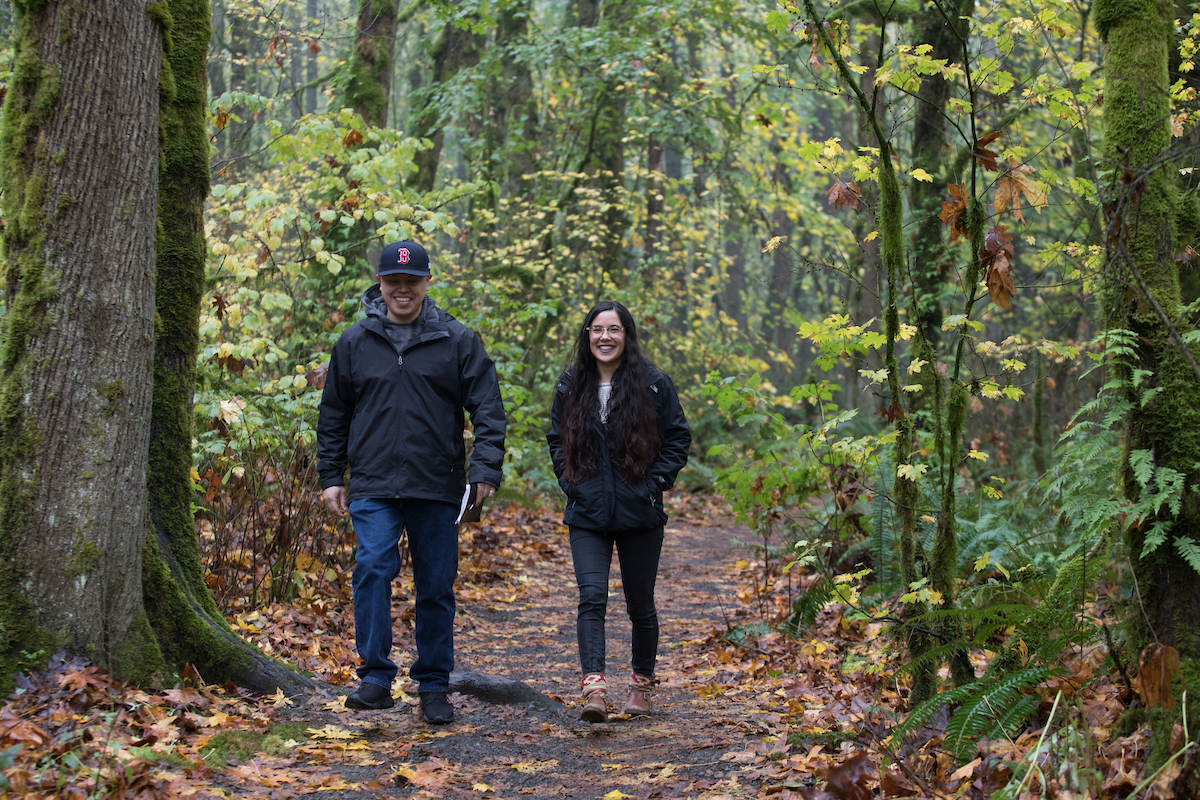Summer 2020
Cultural Ecology in the Urban Forest at Tryon Creek
This course is designed to inspire and question the ways we educate both ourselves and our next seven generations as global stewards. Through remote discussions and exercises, readings and media, nature journaling, and personal reflection, students will gain a deeper appreciation of the authentic cultural ecology of the area. Students will have the opportunity to collaboratively apply their learning to a community outreach project that helps the extended Tryon Creek community in building unique and lasting relationships with the natural world. The projects and course will take place mainly in person at Tryon Creek.
This course will explore sustainability, food security and personal connection to the environment through community engagement at the Oregon Food Bank and Wombyn’s Wellness Garden. Students will examine community-based learning through the lens of sustainability leadership, and engage with alternative and critical perspectives on sustainability. Class time will focus on hands-on activities in the learning gardens, group discussion and community engagement projects in support of the Oregon Food Bank and Wombyn’s Wellness Garden.
This capstone is designed to provide an opportunity to learn about Spanish culture and society by means of synchronous and asynchronous discussion group forums between American and Spanish middle and high school students. The communities of students will be from: Portland, Oregon, various schools in Washington state and Zamora, Spain. These forums will be between paired classes (one USA and one Spanish) of similar grade and language level and will be facilitated and monitored by both teachers of each class. Each grouping of classes will be assigned 2 capstone students.
Mobilizing Hope Capstone: Engaged Spirituality. This course asks each participant to examine and discuss their own spiritual beliefs, and use that reflection as a spring board for social justice activism on an issue of their choosing. All students are welcome - those with a solid faith tradition, and those with none - and anywhere in between. Each student will develop their own partnership; each partnership and project must be approved by the Instructor.
Girls Rock Camp. The Rock & Roll Camp for Girls is a local non-profit organization that works to build girls' self-esteem through musical & performance mentorship as well as empowers/prepares young women of diverse backgrounds for leadership roles within their communities. Students in this Capstone will examine contemporary social issues related to the lives of girls today, as well as participate in Rock Camp programming & the creation of a final communication plan to secure on-going community support & sustainability for the camp. Please contact Molly Gray, mcg@pdx.edu, for more information.
 Tryon Creek: Cultural And Ecological Education. Students will participate in interpretive programs facilitated within the Tryon Creek State Natural Area.
Tryon Creek: Cultural And Ecological Education. Students will participate in interpretive programs facilitated within the Tryon Creek State Natural Area.
Grantwriting: Sustainability A grant is a proposal that seeks funds to solve a problem and normally is directed by a nonprofit organization [IRS 501(c)(3) designation] to a federal, state, or local government agency, a foundation, or a corporation.
 Research and Society. The objectives of Research and Society are: Community service with an emphasis on the sciences and your research interests; Learning to communicate scientific material in various media to professional and lay audiences; Higher level thinking about questions about scientific processes & ethics—synthesizing knowledge; and, Preparation to complete undergrad work and enter grad school and the workforce.
Research and Society. The objectives of Research and Society are: Community service with an emphasis on the sciences and your research interests; Learning to communicate scientific material in various media to professional and lay audiences; Higher level thinking about questions about scientific processes & ethics—synthesizing knowledge; and, Preparation to complete undergrad work and enter grad school and the workforce.
